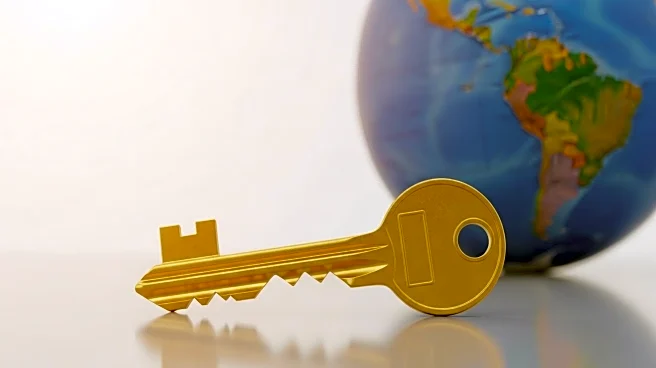What is the story about?
What's Happening?
Chenyue Mao, a Wells Fargo banker based in Atlanta, has been allowed to leave China after being subjected to an exit ban by the Chinese government. This development follows diplomatic discussions between the United States and China, potentially linked to an upcoming meeting between President Trump and Chinese President Xi Jinping. The U.S. State Department has previously warned about China's use of exit bans, which have affected numerous Americans. Mao's release comes shortly after a new executive order by President Trump aimed at penalizing countries that wrongfully detain Americans.
Why It's Important?
The release of Chenyue Mao highlights ongoing tensions between the U.S. and China regarding the use of exit bans. This incident underscores the broader geopolitical dynamics and the U.S. administration's focus on securing the release of Americans detained abroad. The situation also reflects the complexities of U.S.-China relations, particularly in the context of trade and diplomatic negotiations. The outcome of these discussions could influence future diplomatic strategies and policies concerning international travel and business operations.
What's Next?
President Trump is expected to discuss the matter further with President Xi Jinping, which could lead to additional diplomatic engagements. The U.S. may continue to press for the release of other Americans affected by similar bans. The executive order on wrongful detention may also be applied more broadly, potentially impacting U.S.-China relations and international diplomatic practices.
Beyond the Headlines
The use of exit bans by China raises ethical and legal questions about the treatment of dual nationals and the enforcement of international laws. This case may prompt discussions on the rights of individuals in foreign jurisdictions and the responsibilities of governments to protect their citizens abroad.

















